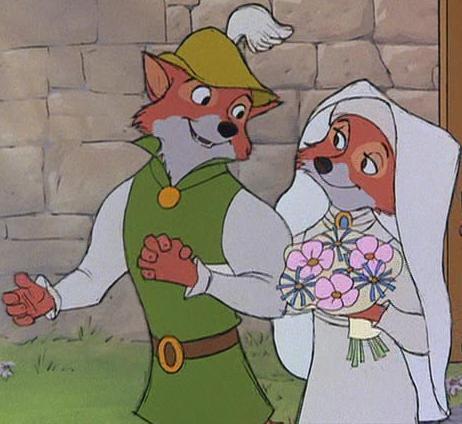I am con
 vinced many films are born out of whimsy. Danny Boyle really wanted to make a Bollywood movie and thus we have Slumdog Millionaire. Likewise, Riddley Scott thought it would be really funny if Robin Hood was a hero of libertarian principles. Libertarian ideas are popular in film. Look at Iron Man.
vinced many films are born out of whimsy. Danny Boyle really wanted to make a Bollywood movie and thus we have Slumdog Millionaire. Likewise, Riddley Scott thought it would be really funny if Robin Hood was a hero of libertarian principles. Libertarian ideas are popular in film. Look at Iron Man.Crowe's Robin Hood has two notable opportunities to deliver his political view of the world. In the exposition, he declares that the common man has the power to make England rich. In the conclusion, he preaches the values of liberty and the natural rights included within the American constitution. He was truly ahead of his time, wasn't he?
Also, the evil power hungry King John has a beautiful scene in which he blames his predecessor's futile war. He says he inherited so many problems. Sound familiar? He also concludes that the kingdom has no choice but to tax its way out of debt.
This is a story about politics. To keep your attention, Mr. Scott delivers plenty of action and cinematographer John Mathieson gives us all the glitter and glamor we expect from a meticulously crafted story.
Scott is obviously planning for a sequel. The entire film feels like exposition and thus it feels shallow and simple. The philosophical scenery is painted in broad strokes of black and white. If Brian Helgeland's story is to develop this story, he wants to lay a thick foundation and save the subtle touches for the sequel. The irony being, there probably won't be a sequel. If Scott was serious about making a sequel, he should have dropped some Easter Egg clues to the potential development.
Negative reviews such as from The Village Voice express a lament over the film's failure to deliver on the initial hype of the film. I see opportunity to make right on these wrongs in a sequel. What we have is the groundwork for blockbuster sequel of Matrix proportions.
 What the Larry and Andy Wachowski did for Descartes, Riddly Scott has the potential to do for John Stewart Mills.
What the Larry and Andy Wachowski did for Descartes, Riddly Scott has the potential to do for John Stewart Mills.Scott's Robin Hood ultimately failed with critics because they are unable to separate the folk lore from its previous interpretations. Errol Flynn's gaiety and Disney's cute Socialist undertones are difficult icons to overcome because they are so ingrained into pop culture and remain powerful after several decades.
My question is, why does Robin Hood fail where Batman succeed? It is strictly politics?

